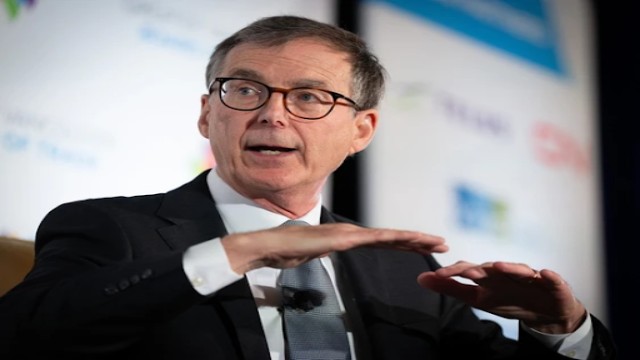
Bank of Canada Governor Tiff Macklem delivers a speech at the Greater Vancouver Board of Trade in Vancouver, B.C. The event was captured in a photo by Ethan Cairns of The Canadian Press.
Bank of Canada Governor Tiff Macklem has raised concerns that imposing tariffs on Canadian and Mexican goods could significantly harm both countries' economies in the long run. Speaking at a Bank for International Settlement event in Mexico City, Macklem warned that such measures would slow economic growth, reduce productivity, and force central banks into difficult decisions.
Economic Risks of Tariffs
Macklem explained that broad-based tariffs make economies less efficient, leading to reduced investment and lower productivity. He emphasized that when countries produce less, they ultimately earn less. His remarks come in response to U.S. President Donald Trump's executive orders, issued on February 1, imposing a 25% tariff on Canadian and Mexican goods and a 10% tariff on Canadian energy exports.
Following these tariffs, Canada and Mexico reached an agreement with the Trump administration on Monday, securing a temporary 30-day pause. However, Macklem warned that if these tariffs remain in place, the long-term economic impact could be severe, with industries struggling to adapt and supply chains facing major disruptions.
Challenges for Central Banks
Macklem acknowledged that monetary policy alone cannot fully counteract the negative effects of tariffs. Instead, central banks must navigate a complex balancing act between weakening economic growth and rising inflation caused by supply chain issues and higher costs.
“In an era of structural change and supply shocks, central banks will face tougher choices,” Macklem stated. He also noted that difficult economic decisions could lead to public dissatisfaction and even challenge the independence of central banks.
A Plan for Stability
To address these challenges, Macklem outlined five key priorities for central banks.
- Recognizing Uncertainty: He urged policymakers to remain humble about what they do not know while trusting in proven economic frameworks. He admitted that while past decisions during the pandemic were not flawless, inflation has now declined without triggering a recession in Canada.
- Defining Monetary Policy’s Role: Macklem stressed the importance of setting clear expectations, warning against placing unrealistic demands on central banks.
- Improving Economic Data: He called for a deeper understanding of the supply side of the economy by gathering richer information and analyzing economies through multiple perspectives.
- International Cooperation: Macklem emphasized that central banks must work together globally to tackle economic challenges.
- Maintaining Independence: Finally, he highlighted the need for central banks to remain free from political pressure while ensuring transparency and accountability.
Macklem concluded by acknowledging the increasingly difficult global landscape but reaffirmed the role of independent central banks in navigating tough economic conditions.















